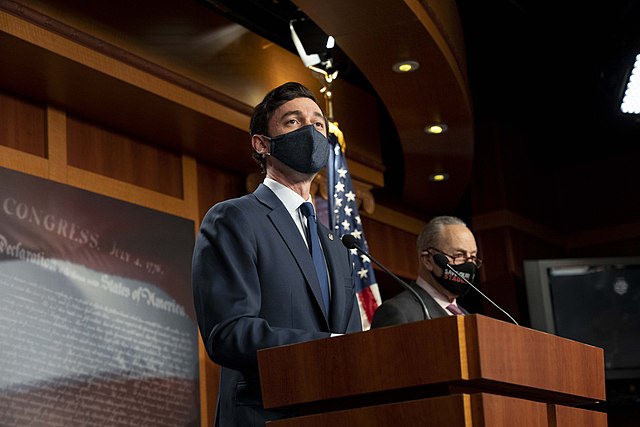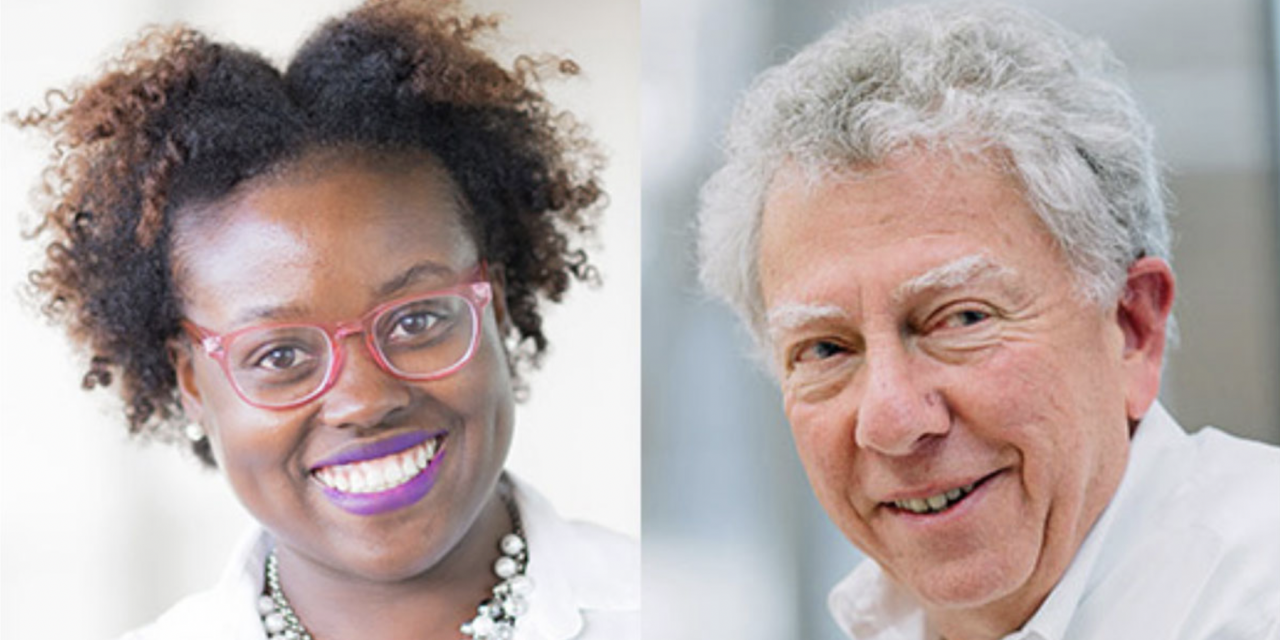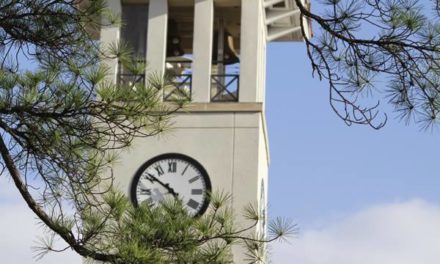Emory University Creative Writing Professor of Practice Hank Klibanoff concluded another semester of his long-running class, Georgia Civil Rights Cold Cases Project, on Dec. 8. Just three days prior, U.S. President Joe Biden signed the Civil Rights Cold Case Investigations Support Act into law on Dec. 5 to extend the lifetime of the Civil Rights Cold Case Records Review Board from four years to seven years.
The U.S. Senate confirmed Klibanoff and Stuart A. Rose Manuscript, Archives and Rare Book Library Instruction Archivist Gabrielle Dudley’s nominations to serve as two of the board’s four members on Feb. 17.
More than a class, the project is an ongoing historical and journalistic exploration of unsolved or unpunished racially-motivated murders that occurred during the modern civil rights era. While the class investigates these cases, the Board’s purpose is to expedite the release of records the federal government has held onto for 50 to 60 years. These records will allow for further investigation into the cold cases Klibanoff and his students explore in class.
“Inside those records is the story often of what happened, or at least some investigator’s version of what happened and FBI agents, or a series of FBI agents, their version of what happened in a particular case,” Klibanoff said. “A lot of those records have just been sitting in file cabinets, one because most people don’t know they’re there.”
Civil Rights Cold Case Investigations Support Act
Congress passed the Act on Nov. 14. The bill was introduced by Sens. Jon Ossoff (D-Ga.) and Ted Cruz (R-TX) in the U.S. Senate in February, and Illinois Rep. Bobby L. Rush (D-1) introduced companion legislation in the U.S. House of Representatives on Nov. 14.
The Civil Rights Cold Case Records Review Board was established in 2019 after former U.S. President Donald Trump signed the Civil Rights Cold Case Records Collection Act of 2018 into law. However, Trump never appointed any board members. U.S. President Joe Biden officially named the board members during his first 100 days in office.
Klibanoff said that the Board’s implementation was halted during the transition between the Trump and Biden presidencies, as well as with the COVID-19 pandemic, leaving the board with one year to complete four to five years’ worth of work. Thus, Ossoff’s bill extended the Board’s lifetime.
Dudley, who is a native of the Birmingham, Ala. area, grew up learning extensively about cold cases that occurred in her city. She said she is excited to represent her profession as the sole archivist on the Board.
“There’s a lot of jargon that is used any time that you’re thinking about using any type of governmental records, but really being able to distill that down for people is really important to me,” Dudley said.
As an archivist who works heavily with public service and outreach programs, Dudley will determine whether certain records can be made available to the public.
“One of the goals and aims of the Board eventually is to think about how we can disseminate information about what the board has been doing and also make it easier for the average person to access these records if and when they want to,” Dudley said.
Klibanoff added that it’s currently difficult to access such documents because people need to use the Freedom of Information Act, which is “bogged down” and “not working.”
“It wasn’t working, not just for families, but for journalists like me who were seeking to get these stories out or scholars who write about this,” Klibanoff said. “Anybody who wanted them … it would be difficult.”

Sen. Jon Ossoff (D-Ga.) introduced the bill in February alongside Sen. Ted Cruz (R-TX). Courtesy of Wikimedia Commons
Georgia Civil Rights Cold Cases Project
Although the Senate didn’t appoint board members until this year, Klibanoff has been investigating unsolved and untried murders during Georgia’s civil rights movement at Emory since 2011.
On the Friday before Thanksgiving 2015, Klibanoff, Emily Gaines (16C), Ellie Studdard (18C) and Lucy Baker (18C) traveled to Montgomery County, Ga. to investigate the killing of Isaiah Nixon, who was shot by a white police officer in front of his wife and children in 1948. Nixon was buried in the area, but his family had since lost track of his gravesite.
Sixty-seven years later, in the cemetery where Nixon was buried, Studdard found a headstone with “FATHER” carved across the top.
At the corner of the headstone, Studdard saw the crudely drawn letters that spelled the first three letters of Nixon’s name and the first three letters of the month he died.
Klibanoff immediately called Nixon’s daughter, Dorothy Nixon Williams, who expressed enormous gratitude for their team.
“Mrs. Williams came to Old Salem Cemetery to see her father’s gravesite with her own eyes for the first time since the day in 1948 when she attended his funeral,” Klibanoff wrote afterwards. “She kneeled at his grave, touched his name for the first time in 67 years, and began to cry.”
Their discovery was recognized in the Wall Street Journal, which highlighted the significance of the project.
“The purpose of it is to teach history in a unique way that interests students in ways they had not anticipated a history course engaging them,” Klibanoff said.
Klibanoff said that the enslavement period continues to hold back Black American progress in the United States, but that the aftermath is worse when compounded with civil rights movements, brutalities that took place and the “promise of freedom” that was severely undermined in the South.
“White officials might change the title of the period they were in and call it an ‘emancipation period,’ but they weren’t about to change the practice,” Klibanoff said. “And it’s worth us knowing this, and it’s worth us studying this and never forgetting it.”
The story garnered national attention, including that of Keith Johnson, nephew of the man who had killed Nixon, Jim Johnson.
Johnson’s nephew sought to apologize on behalf of his family, which Klibanoff helped facilitate. Williams and Johnson’s nephew met in Jacksonville, Fla., an interaction that ultimately became the sixth episode of Klibanoff’s NPR podcast, Buried Truths.
“That moment … has a million lessons in it, to any researcher, about the value of perseverance, and being resourceful in the way one seeks their resources,” Klibanoff said. “It was a magical moment for us.”
Fall 2022: The James Brazier and Willy Countryman cases
The fall 2022 Cold Cases Project class examined the cases of James Brazier, a Black man who was beaten to death by a police officer named Weyman Burchle Cherry, and Willie Countryman, a Black man who was shot by Cherry.
Cherry alleged that Countryman had “cursed” at the police officers and lunged at him with a knife, and Cherry had shot him out of self defense. However, Countryman’s family insisted that he did not normally carry a knife.
Sabrina Schoenborn’s (24C) fall 2022 project examined the knife’s exaggerated description, including the color, proportions and other attributes. Witnesses’ accounts of the knife ranged from silver to brown, from three inches to 10 to 12 inches, from ridged to dull.
Additionally, Schoenborn investigated the switchblade laws at the time and examined how the alleged knife ties into a “moral panic” that occurred when “making monsters” out of the victims of anti-Black violence.
“Seeing how so many of the victims of these really intense anti-Black violence were painted in such a way that the narrative of the community was not heard and didn’t matter,” Schoenborn said. “That was really stark, to watch this very intense narrative grabbing and how, basically, this entire system by Dawson and honestly the rest of the country was very much fixed from the beginning.”
The idea of self defense was a continuous narrative police used, claiming to be put in such a dangerous situation that they had no other option but to defend themselves, Schoenborn said.
Jake Green’s (24C) fall 2022 project followed a man named Manuel John Hall, who lived in Dawson, Ga. from 1920 to 2011.
Hall was unassuming and “didn’t really like to speak up,” Green said. However, it was Hall who wrote and signed a letter addressed to the Federal Bureau of Investigation (FBI) and kicked off the investigation for Countryman’s death.
“When I saw that in the FBI file, I saw Manuel John Hall’s name signed on the letter,” Green said. “But I never saw his name reprinted, he was never interviewed by the FBI, he was never mentioned again in any of the briefs, so I thought that was interesting and I wanted to find out more about Manuel John Hall.”

Stuart A. Rose Manuscript, Archives and Rare Book Library instruction archivist Gabrielle Dudley (left) and Creative Writing Professor of Practice Hank Klibanoff (right) serve on the Civil Rights Cold Case Records Review Board. Courtesy of Emory University.
Hall was a member of the NAACP and had the largest farm in Dawson, Ga., qualities Green said may have been a source of contention. Additionally, Hall’s children were civil rights advocates in their high school during the early ’60s, causing one of them to be expelled.
“The whole story sheds light on how people who weren’t really at the forefront of the civil rights movements, even in small towns, still had enough conviction and confidence and courage to make a change within their community,” Green said.
After further investigation, Green found that the Dawson Board of Commissioners had renamed the road Hall lived on to honor him during his lifetime. He used that as a springboard to further research on what Hall did to earn a road dedication.
Green hopes to interview Hall’s surviving family members, who have been unresponsive so far.
The project’s importance
As a history major, Green said that the class was a straightforward way to practice researching. He noted that Klibanoff walked through the steps of how to proceed with an unanswered question and was great at keeping students on track with their projects.
“Everyone in the class works together, shares ideas, researches together to make the product better than the sum of its parts,” Green added.
On a more personal level, Green said that he enjoyed seeing the impact of their work on real people. Klibanoff shared video clips of family members of the people who were killed during the civil rights era, which include what the cold cases project has done to give them closure.
Schoenborn said that being able to connect families to loved ones was the most impactful part of the project.
“Something that’s been the most striking for me by far has been the connection we’re being able to make to descendants,” Schoenborn said. “The fact that we’re able to connect descendents to graves, to records, is a really big deal, and being able to connect families to loved ones is definitely one of the most impactful parts of the project.”
Schoenborn added that she is grateful to have had the opportunity to learn about cases that aren’t out in the open and part of her mainstream education.
“This class is by far one of the most impactful I’ve ever taken,” Schoenborn said. “Being able to view history as tangible is not something that we get to do very often.”
Editor-in-Chief Brammhi Balarajan (23C), Managing Editor Gabriella Lewis (23C) and Emory Life Editors Chaya Tong (25C) and Xavier Stevens (22C) are currently or have previously been involved in the Georgia Civil Rights Cold Cases Project and had no role in writing or editing this article.
Ashley Zhu (she/her) (25C) is from Dallas, Texas, majoring in biology and minoring in sociology. She is the vice president of recruitment for the Residence Hall Association, a sophomore advisor for Raoul Hall and a staff writer for the Emory Undergraduate Medical Review. She is involved in cell biology research at the Pallas Lab and is a BIOL 141 Learning Assistant. Zhu enjoys FaceTiming her dog, stalking people's Spotify playlists and listening to classical music in her free time.






